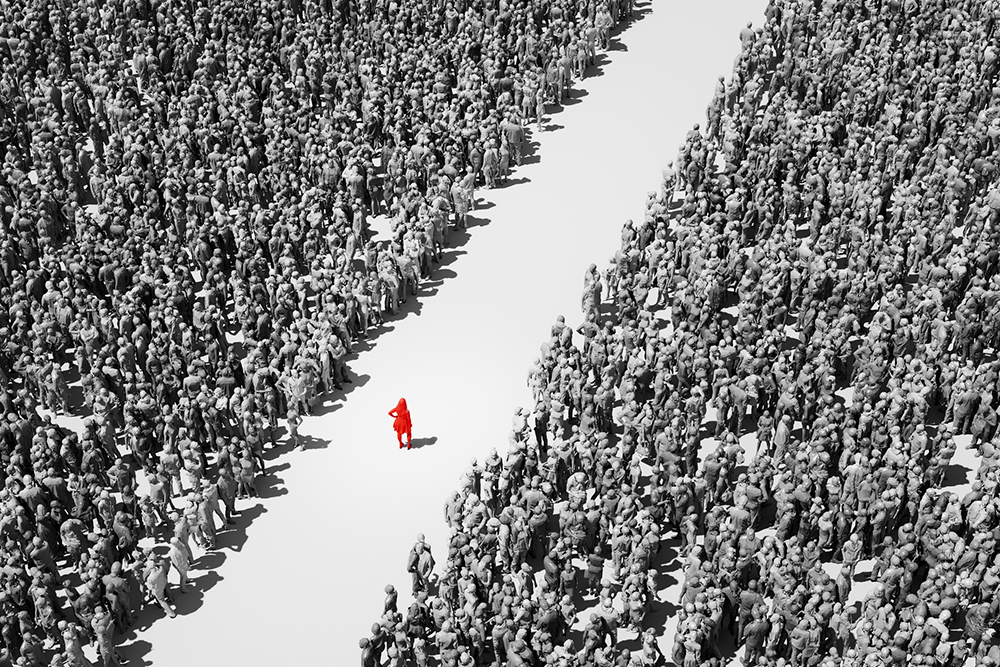What’s the greatest divide in life? Is it between the dumb and the clever, the rich and the poor, the ugly and the beautiful? All have their points, but in my opinion it’s between those who can make a living doing a thing they love and those who do a job they don’t particularly care for. I don’t believe that anything else comes near deciding whether or not you’ll be consistently happy with your life.
Personally, I have never stopped being delighted by the fact that, from the ages of 17 to 65 – even lying in bed as a newly-minted cripple – I can earn my living by writing. It’s all I ever wanted to do. As the number of working-class women who never went to university yet still made their living as writers is minuscule, I’m aware of how fortunate (and excellent) I’ve been – especially as our once vagabond shoes are increasingly being filled by the dreary spawn of those already in the racket as surely as acting or modelling.
Whatever the actuality, I can’t help thinking that Mr Watt is himself a good part of the problem
Writing always scores high as a dream job; usually second only to pilot and often beating everything from influencer to lawyer. In the case of the latter, this is understandable, as lawyers – along with doctors, dentists, farmers and architects – are among those most susceptible to suicide. At the other end of the scale, the happiest workers are hairdressers, beauticians, electricians and plumbers, presumably because they leave people far perkier than they were before, whether because they’ve had their roots done, or because they’ve now got a working toilet.
I thought about whether we live to work or work to live when considering the case of James Watt, the beer entrepreneur who is currently in hot water after calling the UK ‘one of the world’s least work-oriented countries’. He told the Times that he has ‘received death threats for arguing that only people who hate what they do have an obsession with work-life balance’. This came after a video on social media in which the Brewdog beer company co-founder informed a breathlessly waiting world that he believes instead in ‘work-life integration…the whole concept of work-life balance was invented by people who hate what they do. So if you love what you do you don’t need work-life balance, you need work-life integration.’
This sensitive little flower – though presenting as a big burly chap – deleted the Instagram post after comments ‘crossed the line from debate to personal abuse’. But it seems he just couldn’t resist going back and taking up that tempting old shovel one more time, next linking this little spat to what he perceives as this country’s bad work ethic. He brought up a study by the Policy Institute at King’s College London in 2023 claiming that out of 24 countries, citizens of the UK are least likely to say that work should always come first:
As a nation, we love to joke about the French being lazy but the reality is that our output per hour is 13 per cent lower than theirs…and I’ve heard countless international leaders say that the UK’s work ethic just doesn’t stack up against other nations.
Is that really true, though? There are several surveys which claim that the British work among the longest hours in Europe. France, on the other hand, clings fiercely to its reputation for prizing pleasure above business. Overtime is less common in France than in other countries; lunch breaks can last two hours. The ‘right to disconnect’ was introduced in 2017, forbidding the sending or replying to work emails after hours. In 2023, Emmanuel Macron’s plans to raise the retirement age from 62 to 64 led to a massive campaign of strikes and demonstrations. ‘There’s a certain hatred in the air that we’ve rarely seen against a French leader,’ said Dominique Andolfatto, a professor of political sciences at the University of Burgundy. ‘This is uncharted water.’ Compare this with the mild grumbling of we WASPI women!
Whatever the actuality, I can’t help thinking that Mr Watt, who stepped down as chief executive of BrewDog last year, is himself a good part of the problem. Despite his lovely life, he seems quite insane with misanthropy, keenly casting about for a target for his ire. It reminded me of way back in 2011 when Jamie Oliver went off on one in the Observer, saying he was looking for teenagers who could ‘knock out seven 18-hour days in a row – you need to know what real work is. I’ve never experienced such a wet generation. I’m embarrassed to look at British kids. Meanwhile, I’ve got bulletproof, rock-solid Polish and Lithuanians who work hard!’
Yes, it’s those rotten chavs again, refusing to work all the hours God sends for a few pennies – they’ll be wanting toilet breaks next! Which brings us back to Watt’s recent rage at the ‘work-shy’ Briton.
To be fair, with his apparent track record, anyone sensible would shy away from working for him. In 2021, 61 current and former employees signed a letter accusing him of presiding over a ‘toxic culture of fear’. In response, Brewdog apologised and committed to do better. I’m not the most sensitive person on earth, but he sounds like a very specific nightmare of a boss. Stingy too – always the chef’s kiss on a repulsive man – being personally worth £262 million yet last year announcing that Brewdog will no longer pay their workers the real living wage but rather the minimum wage, apparently as a result of making a trading loss in 2023. Roll up, you work-shy malingerers!
Watt last year announced his engagement to Georgia Toffolo. Amusingly, their union has only made him more insufferable; he’s now one half of an ick couple as well as a titan of ick in his own right. Toffolo’s ‘work’ – which she isn’t in the least shy of, understandably – appears to be mostly posting on Instagram on holiday and being in reality TV shows, though she has written several romantic novels and runs a raw dog food company, the contents of which are strikingly interchangeable.
She opined that she and Mr Wonderful were in possession of ‘a lack of work-life balance in a really beautiful way…we do things that we find incredibly fulfilling and we also have a supportive other half that loves that high-octane obsession with what we do.’ I’ve always believed that when someone says ‘I’m just a hippie at heart’ they’re the shrewdest shark in the tank, and Toff’s airy-fairy musings while managing to hook a man with such a huge amount of moolah does nothing to contradict this instinct.
Her flight of fancy brings us back to the question ‘What is work?’ Yes, it’s what you get paid for, so in one sense we are all workers if we make our own living. But if you love your work, I would very much advise you not to start mouthing off about the perceived failings of the majority who are relieved to clock off, lest you become a laughing stock. This was the fate of Gwyneth Paltrow when she famously claimed that being a film star was harder than being a regular worker:
I think it’s different when you have an office job, because it’s routine and, you know, you can do all the stuff in the morning and then you come home in the evening…when you’re shooting a movie, they’re like, ‘We need you to go to Wisconsin for two weeks’, and then you work 14 hours a day and that part of it is very difficult. I think to have a regular job and be a mom is not as, of course there are challenges, but it’s not like being on set.
That’s why it was so refreshing to see the glamour girl, TV presenter and wit Olivia Attwood break ranks during Covid: ‘People are losing their family members daily, people can’t pay their rent, people’s businesses are crumbling around them and you’re on your Stories on the beach telling us we don’t know how hard it is’. ‘Being an influencer is actually really hard and I can’t create content for you guys here, so I am going to have to go on holiday but don’t worry I will keep referring to it as “work”,’ she mocked.
The weird thing is that I agree with James Watt’s main argument: ‘If you love what you do you don’t need work-life balance, you need work-life integration.’ But most people aren’t pilots or writers or make millions founding a beer brand. It’s absolutely logical that people who work at a thing which brings them no pleasure in order to pay their bills want to do the least of that thing as they can get away with – and as one of the fortunate minority, I’m totally on their side.








Comments